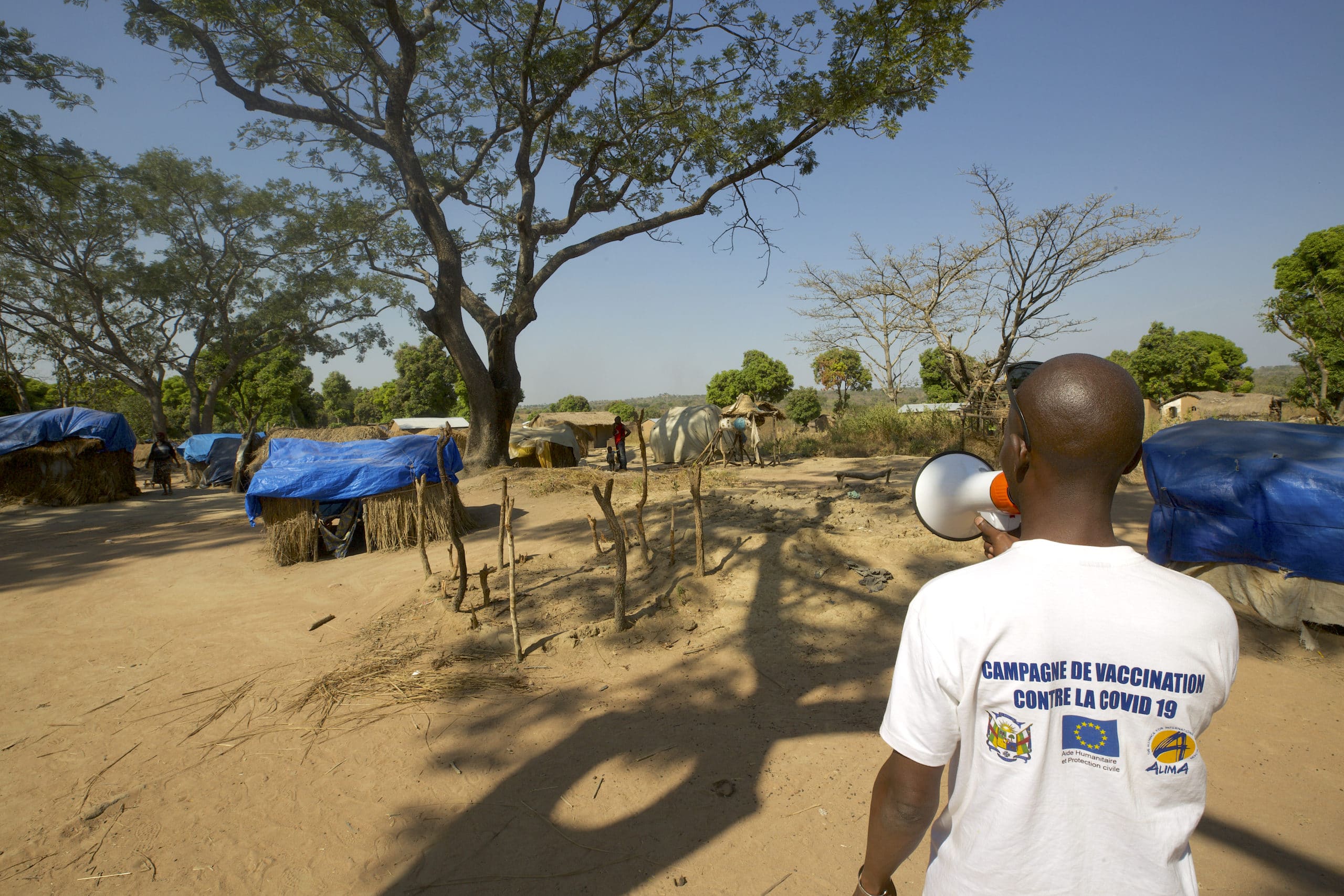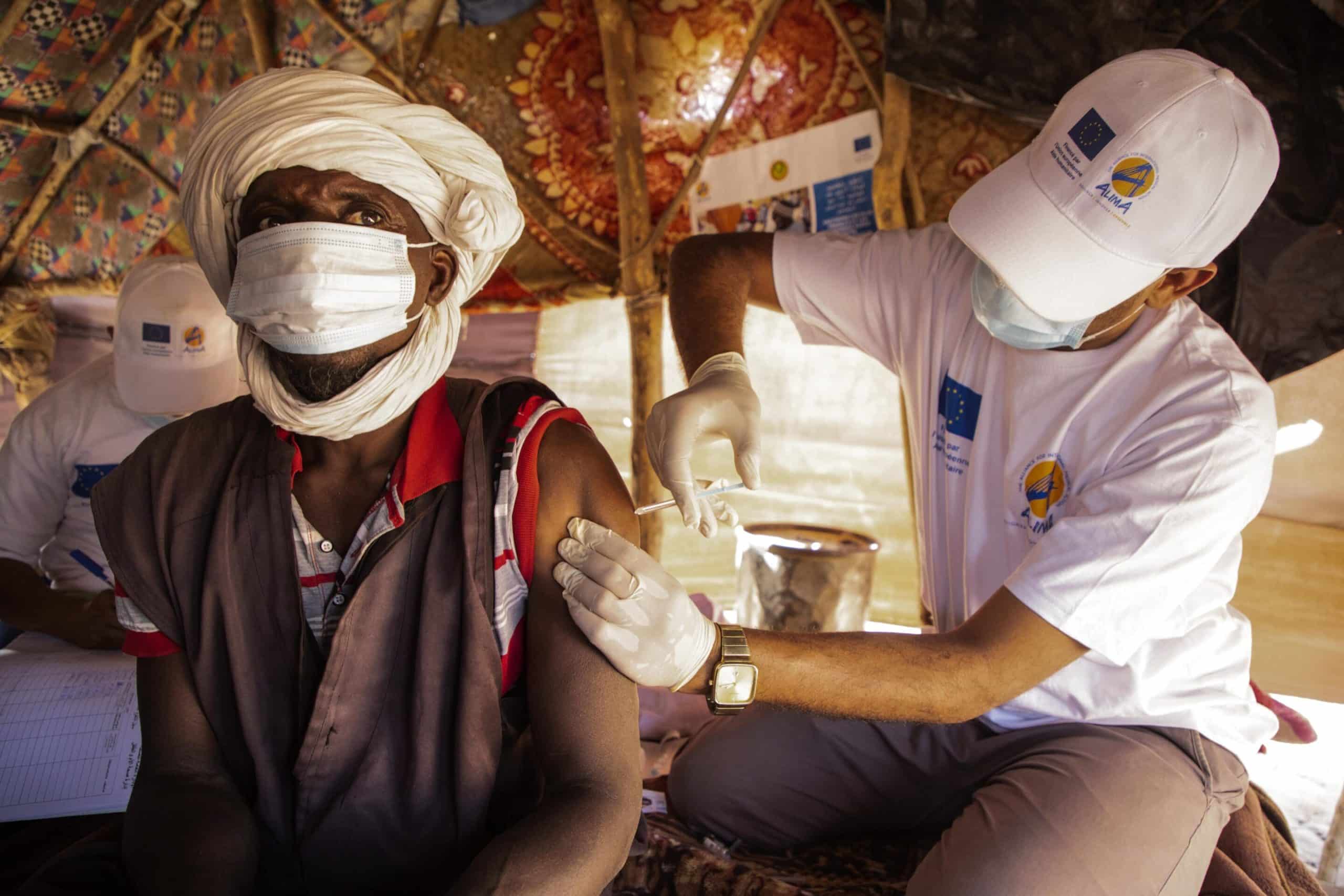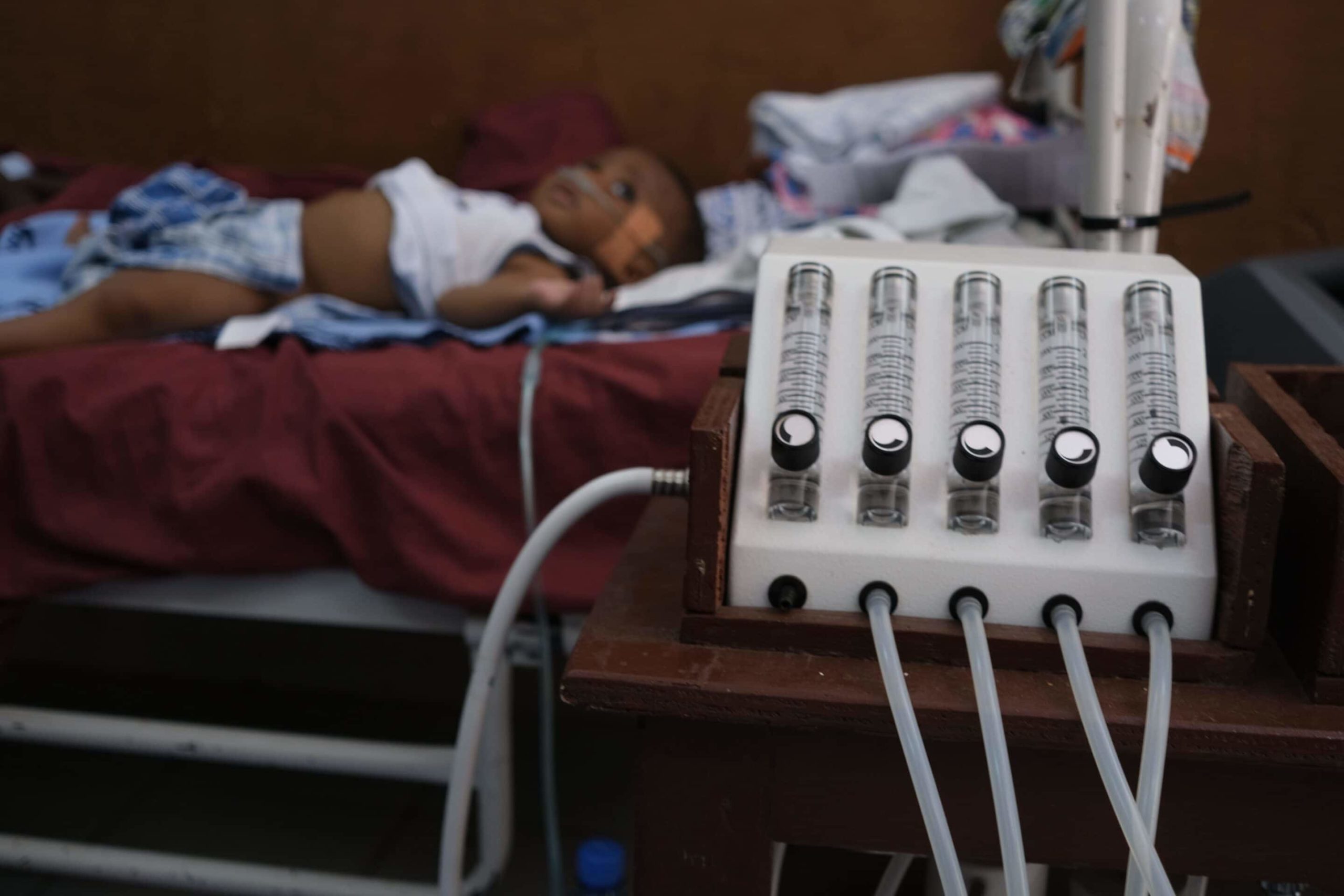To begin the visit, we walk through the small streets of South Yeumbeul, a community located east of Senegal’s capital city, Dakar. Fortunately, Papa Ndiaga Cissé, an anthropologist, and Thierno Dian Sall, a community nurse, know this labyrinth by heart, thanks to their work with ALIMA within this area. They are taking us to meet Thiara Diaw, a young woman who is a community outreach worker.
What do they want to show us? The vulnerability of some people in this neighborhood, whose situation is similar to those in other parts of the country.
Closer to at-risk populations
Thiara, together with ALIMA’s community health workers, regularly visit households near the Cheikh Sidaty Fall health center. This post is nicknamed ‘Pacotille,’ in tribute to the late Senegalese rapper from Yeumbeul, whose songs highlighted the difficult conditions of youth living in the suburbs of Dakar.
But the elderly are not to be forgotten. The team focuses on them, the most vulnerable to the virus.
The goal of ALIMA staff is to identify people who are vulnerable to COVID-19, to register and refer them to the nearest health facilities. They are too often ignored due to a lack of sufficient financial means. Many elderly people even prefer to hide their suffering so as not to be a burden on their family and friends, and resort to self-medication or traditional medicine – solutions that can be counterproductive to their health.

Free care at the ‘Pacotille’ health post
We stop at a house in the neighborhood, where we meet Seynabou Ndiaye. Despite her vulnerability to the COVID-19 virus, she is not currently receiving medical attention. But thanks to ALIMA’s support to the health posts in the area, Seynabou will be able to go for a free consultation and receive the medicines she needs.
By offering free referrals and care, ALIMA gives people who are considered vulnerable the opportunity to return to healthcare centers that they stopped coming to when the COVID-19 pandemic began. These visits are also an opportunity to answer any questions or concerns.
Marième Seck Diouf is the head nurse at the ‘Pacotille’ health post. For the past few months, she and her team have been providing free primary health care to vulnerable people, and also welcome women for prenatal and postnatal consultations, as well as assist childbirths.
“Thanks to ALIMA’s patient-centered approach and proximity to communities, the number of patients attending the health post has increased from 100 per month to 500,” Marième says.

A group that helps identify vulnerable people
Health facilities are not the only places where ALIMA can act to protect the most vulnerable patients, including the elderly or those with comorbidities. ALIMA has also identified partnerships that allow medical teams to reach as many people as possible, including savings and credit clubs. Widespread in Africa, savings and credit clubs are a system often organized by women in a community, and which allow them to engage in microcredit transactions, among themselves. This type of group is a good model for ALIMA because it illustrates the resilience and collective intelligence to face the challenges of everyday life.
We are received by Maïmouna. She is the representative of a savings and credit group that brings together 150 women. Among its members, many are over the age of 50 and/or suffer from chronic diseases. This is why ALMA quickly recognized this organization as a way to identify people who are at an increased risk of suffering from COVID-19. Trained by ALIMA, Maïmouna has become a ‘Bajenu Gox’ – the local phrase for a ‘community liaison.’
Thanks to the leadership of ‘Bajen’ Maïmouna, the women who participate in the savings and credit clubs are now involved in sharing messages within the community on good practices to adopt in the face of COVID-19, as well as general health issues, such as early access to care. At the same time, the vulnerable people, identified during the meetings, receive vouchers from the savings and credit club, so that they can benefit from free care at a local health post.
“This community group has existed since 2006,” says Maïmouna. “These women began by giving cooking demonstrations in order to care for malnourished children,” she recalls.
The participants then broadened their focus to general health problems and are now involved in the fight against COVID-19 in Senegal.
“Beyond the financial objective alone, using this group meeting to train the female leaders of tomorrow is one of our goals,” says Maïmouna.
See more about our work in Senegal
______________
Cover photo: Papa Ndiaga Cissé, anthropologist, and Thierno Dian Sall, community nurse, pose with Instagram influencer Angélique Zapata. On the right is Marième Seck Diouf, a nurse at the Cheikh Sidaty Fall health post in Yeumbeul. © Clémentine Colas / ALIMA



